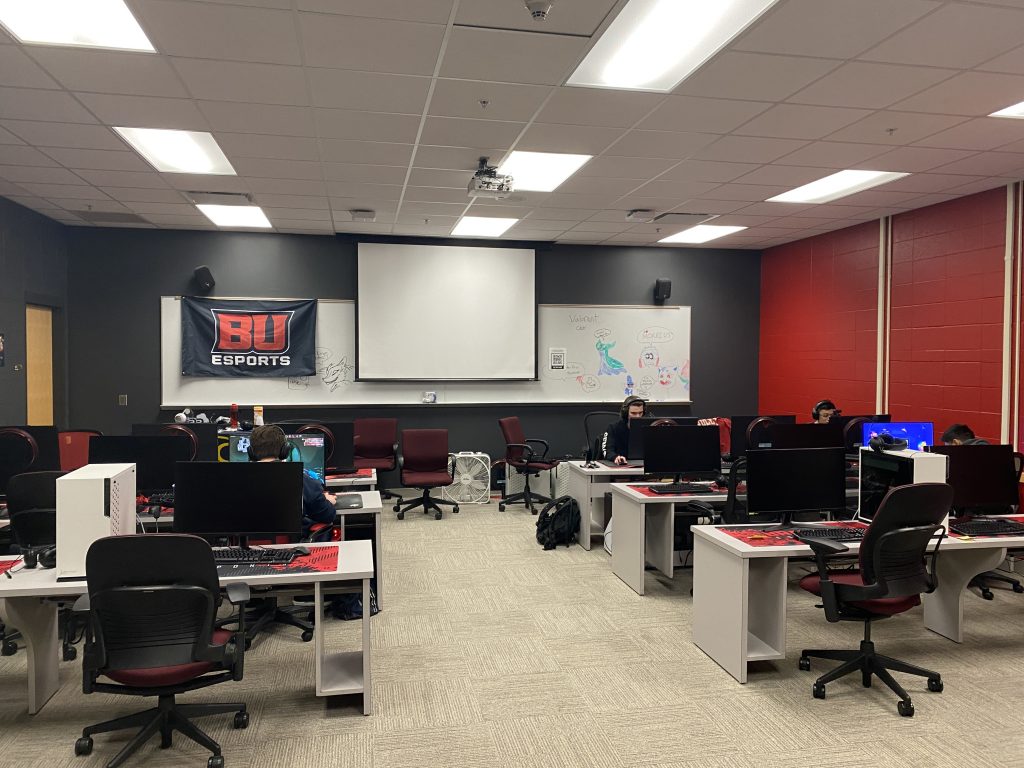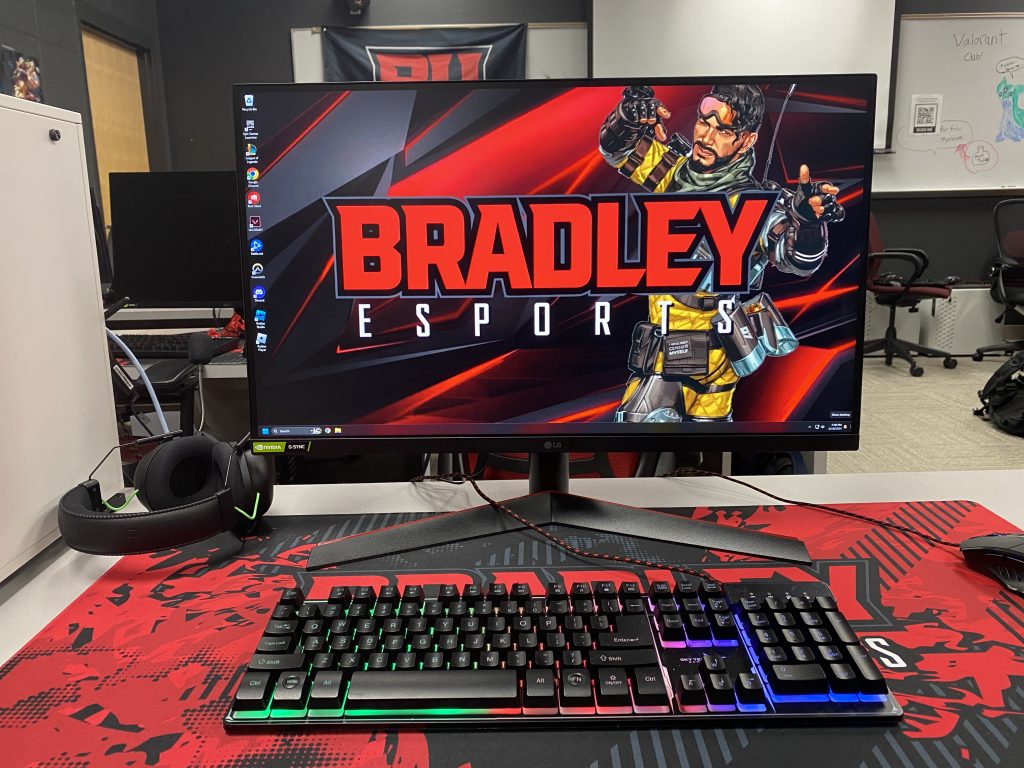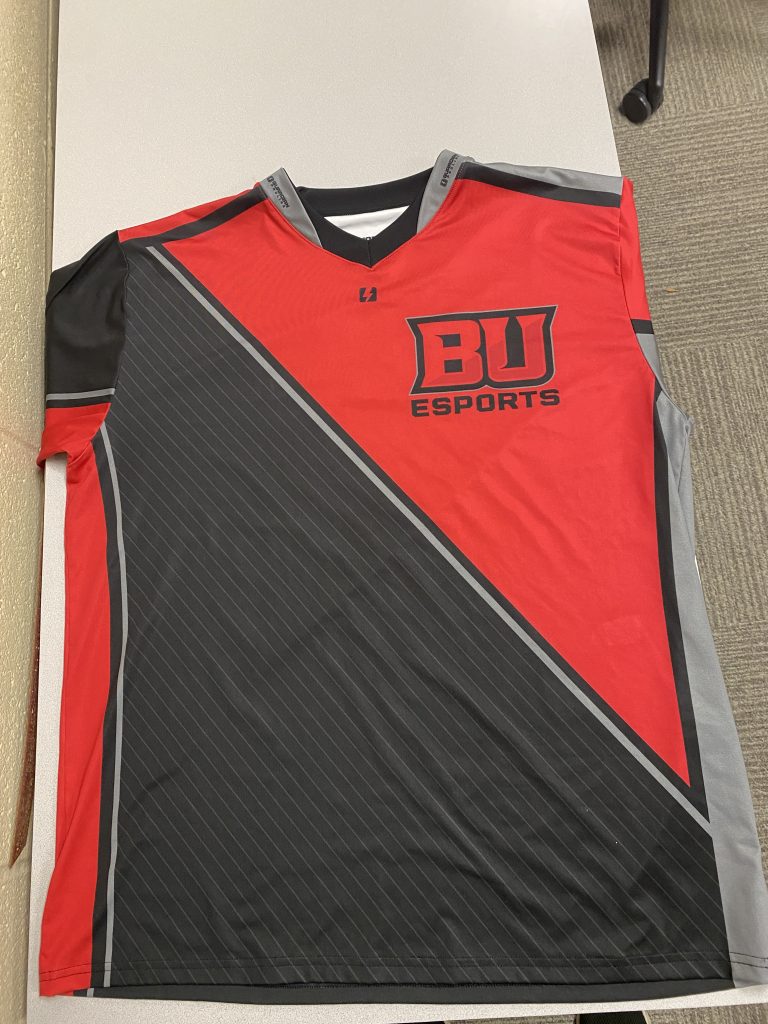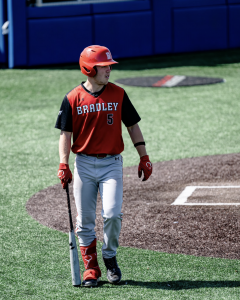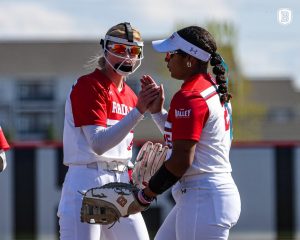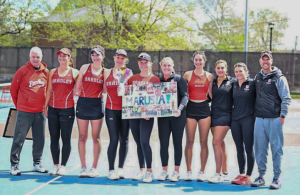Anthony Pollos was shocked when he heard the news.
The graduate game design major is also the Overwatch coach for Bradley esports, and earlier this week he found his team at the forefront of an idea that finally came to fruition.
“I honestly did not know that they were doing esports,” Pollos said. “I was very pleasantly surprised.”
The Missouri Valley Conference announced the addition of esports to its competitive offerings on Monday. Bradley’s esports program will battle with teams from Evansville, Murray State, Missouri State, Southern Illinois, Valparaiso, Illinois State, Belmont and Indiana State.
The semester’s competition started this week across three titles: the melee-fighting game Super Smash Bros, the arcade-style soccer and driving game Rocket League and the first-person hero shooter Overwatch 2. The league is partnering with the National Esports Collegiate Conference (NECC) to “oversee, manage and help support league competition,” according to Monday’s release.
Bradley joined the NECC last year to compete in the leagues they offered. According to president Luke Kotcher, when talks started around Arch Madness to partner the MVC with the NECC, the esports club’s affiliation with the organization made joining the endeavor a no-brainer.
“Since we were already in the NECC, we’re like ‘yeah, let’s be a part of it, it’d be really cool,’” Kotcher said.
Bradley will only compete in Rocket League and Overwatch, taking their top teams from the NECC leagues and placing them in the MVC competition. The teams are still a part of the NECC leagues that started their season a few weeks ago, so Kotcher says they will play in both leagues this semester. However, he says they are up to the task.
“Adding another day of practices, another day of game day, another day of film review, all that kind of stuff is tough to do,” Kotcher said. “And we got committed players that want to do it.”
The conference season will run for eight weeks and end with a championship event for all three games in April, with specific dates and locations to be announced. According to Bradley esports’ faculty advisor Julie Howe, from the beginning, talks about an MVC esports league focused on the conference’s desire for an in-person championship.
“It truly can be this amazing experience where people are wearing jerseys and representing Bradley on that stage,” Howe said. “That’s what we were looking for.”
The MVC choosing these three games was the byproduct of four months of esports club surveys to try and see what would be doable and likable for the conference’s programs. Howe predicts more games will be on the horizon, as conference officials constantly listen to what the programs have to say.
“[The] MVC has consistently shown us that they are learning and that they really want the feedback from the schools and the players and the advisors and [the] coaches,” Howe said. “I anticipate that there will be different titles, or more titles and maybe even a cycle of titles to really be representative of the diverse titles that people are playing and the students and the talent that we have.”
Stacking up with the conference
Across the conference, the gap in competition among teams is widespread. Every school has an esports program, but places like Missouri State and Evansville started theirs recently. UIC, Drake and Northern Iowa won’t compete at all this semester.
On the other hand, Illinois State boasts one of the top esports programs in the country with a $5.95 million facility to back it up. They staff four full-timers and compete against the Big Ten and other power conference teams, often beating them, whereas Bradley is entirely student-run with volunteer coaches.
“I think it’ll be a pretty good competition,” Kotcher said. “It’s just crazy, the difference between every school in the MVC and how different their programs are.”
While some schools, such as ISU, offer esports scholarships and enjoy multi-million dollar spaces to entice players, Bradley esports is on their own when it comes to recruiting. This mismatch may seem disadvantageous during competitions, but other Valley sports deal with similar talent gaps.
“One of the conversations was, ‘what if there is a big mismatch week to week?’” Howe said. “And some of that feedback was ‘that exists in all of our conference play.’”
The players are buying in too, even if they may be at a disadvantage.
“Even though they may expect that they’re going into mismatches, there still is an excitement around this type of organization event,” Howe said.
Pollos agrees that the competition will be stiff, especially against an ISU team that won a national tournament in 2022 and has players who participated in the Overwatch League, the highest level of the game’s competition.
However, Bradley’s Overwatch team has been playing together for over a year, so the chemistry is there to match up against a powerhouse like the Redbirds. The team already won their first match on Wednesday against Missouri State.
“It’s certainly not going to be easy, but in my opinion nothing is,” Pollos said. “I’m very confident in the team that we have formed here, honestly.”
Future impact
The MVC’s announcement is in response to the rising popularity of esports, something Kotcher and his organization have experienced firsthand. The senior sports communication major has been a part of Bradley esports since he was a freshman, serving as vice president his sophomore and junior years and becoming president last semester. The club’s facilities have been upgraded tremendously since he first came to campus, as they now have a dedicated room in the Markin Recreation Center with 18 computers.
Following the pandemic, Kotcher says they’ve gotten a huge influx of people – especially freshmen – so much so that they now have 95 different competitive players and their Discord server has over 800 people.
“It’s a huge deal,” Kotcher said. “Kids are coming in now, they played esports in high school, they have rooms in their high schools now… so kids come to college expecting their college to have an esports program, and I would hope that something like this is something they like.”
Overwatch, in particular, has seen a massive growth in player base, with Bradley upgrading from zero to four teams since the release of the game’s sequel over a year ago.
“I think it brought in a lot of new players and a lot of people who really want to just learn the game as much as they can,” Pollos said. “And I’m really happy that we can provide that here.”
Esports’ growth extends beyond the Markin basement. A successfully-run team can lead to higher admissions, a more diverse student body and more opportunities for talent to shine. Howe says she’s already been talking with admissions and the athletic department about the club’s footprint.
Overall, the organization thinks the effect of this league will pay dividends for the University, both in the esports space and in enrollment.
“This will put Bradley more on the map as more of an esports hub,” Pollos said. “That overall is just a great benefit.”
“The impact of participating in this league, I think, can continue to put Bradley as a contender on the top stage,” Howe added. “And we do have talent and we’ve got hardware. We got some really great students coming to Bradley.”
While the club is still working out streams for the matches, the teams’ schedules can be found on Rally Cry, the MVC’s official competition platform. If students want to get involved with Bradley esports, they can join the club’s Discord server and keep up with the teams on X.
